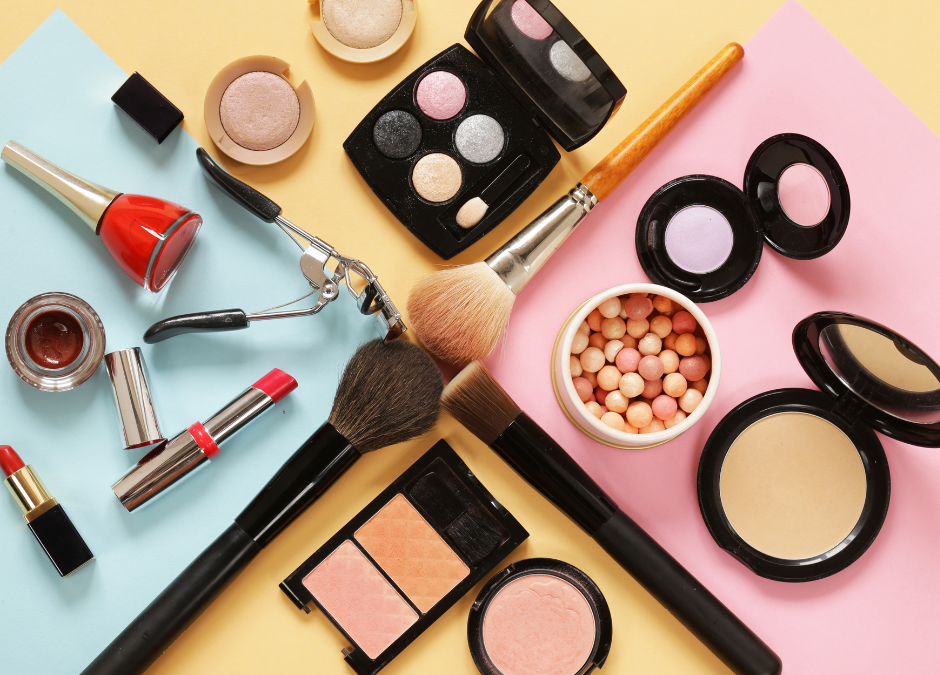We can expect that A.I. will radically change just about every industry imaginable. From manufacturing to the restaurant industry to finance and beyond, there is nary a corner of commerce that will not feel the reverberations of this most impactful technological innovation.
The cosmetics industry is no exception to this. It relies on understanding trends and data insights, which AI excels at.
Below, we cover some of the applications (pun perhaps intended) of artificial intelligence in the ever-thriving world of cosmetics.
Beauty Is in the A.I. of the Beholder
One of the big uses for A.I. in cosmetics is in creating personalized recommendations for people.
It’s evident in AR apps where users point the camera for makeup guidance.
Consumers can try on products from home instead of going to a Sephora, for example.
The AI applies makeup, allowing trying products without touching skin.
And this technology will only be getting more sophisticated as time goes on. It is not hard to imagine many people purchasing products straight from the app after a virtual try-on.
Market Research in the Cosmetics Industry
Trends come and go, and predicting them is one of the toughest jobs that corporations have. That is, right after the work of trying to create the trends themselves through marketing techniques.
Determining these is often done through oodles of market research.
One of the more sophisticated forms of A.I.-assisted market research comes in the form of persona modeling.
Here, a cosmetics company would use A.I. to survey the various market segments of consumers of cosmetics. The work here is to identify the “cognitive insights” to be gleaned for each of these segments, which can be divided and defined in many ways, such as frequent big spenders.
Cognitive insights can involve everything from political leanings to favorite colors. These inspire targeted marketing to capture diverse customer segments’ attention.
Automating the Advertising of Beauty Products
We will go right from the market research to the marketing itself.
In the previous section, we mentioned companies aiming to identify and influence trends.
There are many marketing methods for doing so, such as creating bright colorful ads that show up on social media.
One type is product placement, turning unexpected content into ads.
Product placement can be one of the most effective forms of marketing out there because it is increasingly involving online “influencers” who build large followings.
It is also seen in Hollywood productions that are found in theatres and on entertainment streaming platforms.
A.I. can play a role in these specific cases by automatically stitching products into pre-existing content. That is right–A.I. is allowing companies to bid for product placement in content that was not made with product placement in mind.
Imagine watching a show on a streaming service with products not present during filming. This is made possible through generative A.I. that is adept at inserting marketing material into content.
Since what is seen in filmed entertainment can have an outsize influence on people’s behavior and self-perception, seeing beauty products in this content can be a way for cosmetics companies to leverage A.I. in creating trends in cosmetics.
Applying Fake Eyelashes
Here is a pretty wild one: Robotic beauticians that, among other things, can apply fake eyelashes.
This can easily be extended to other cosmetic applications. For this reason, it is not far-fetched to imagine robotic beauty assistants that are in salons and stores.
Whether this is truly safe enough to implement on a wider scale remains to be seen. These robo-stylists aren’t normalized yet, but they could foreshadow the future.
Closing Thoughts on A.I. in the Cosmetics Industry
It is interesting to consider that A.I., which is emotionless and lacks common sense and therefore has no real conception of a complicated concept like “beauty”, is being employed by the beauty industry.
Will this end up being an asset, or a drawback, of A.I.?
At this point, it’s unknown. However, identifying market segments and cognitive insights may play a big role in ensuring the cosmetics industry thrives globally.


Recent Comments